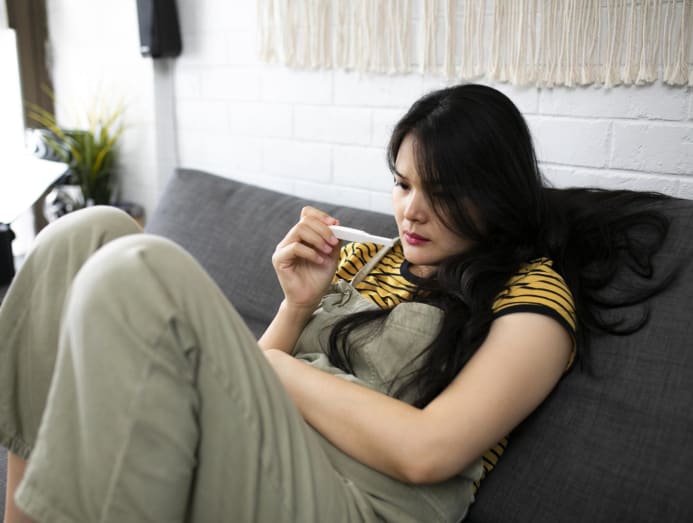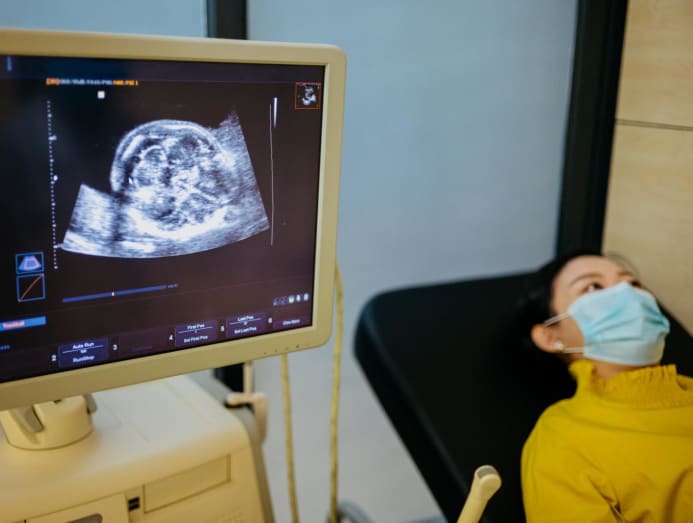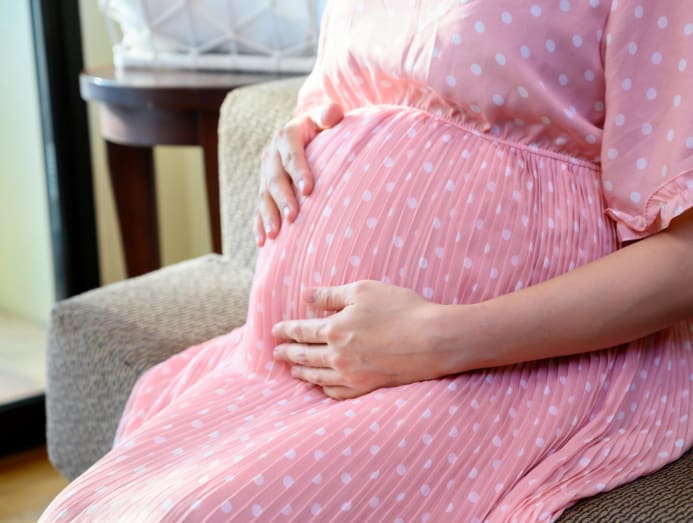Egg donation in Singapore: What couples with complex infertility need to know if they want to have a baby
Egg donation, where a donor provides her eggs to help a woman who cannot get pregnant, is an option for women with low egg reserve or who have battled infertility for many years. CNA Women looks at the issues involved in taking this uncommon path to parenthood.

Egg donation is an option, although an uncommon one, for couples who want to get pregnant, although they will have to take factors such as social implications and the donor’s features into account. (Photo: iStock/somethingway)
When Maya Tan* got married in 2015, the then-30-year-old didn’t give much thought to fertility. She assumed that when she and her husband were ready to start a family, getting pregnant would be a matter of course. Infertility was not on their minds.
After three years of marriage, the couple decided they were ready for a baby and wanted to get pregnant. But what followed was an exhausting path filled with uncertainty and disappointment.
More than a year passed and despite their efforts, Tan still could not get pregnant. When the couple went for a fertility checkup, doctors discovered multiple issues with Maya’s reproductive system.
“I was told I was in the so-called prime age to conceive yet I had so many problems … it felt like a nightmare,” she said.
“I had blocked fallopian tubes which led to an infection, cysts in my ovaries, and the worst part was that my egg reserve was extremely low.”
Tan and her husband sought second opinions and consulted various fertility clinics in Singapore. Each visit brought diminishing hope. Along the way, they endured eight unsuccessful rounds of in-vitro fertilisation (IVF).

EGG DONATION AS HER FINAL OPTION
At her last fertility centre, her doctor suggested egg donation as an option to help Tan get pregnant.
She and her husband were torn – the process meant her child would not carry any of her genes and would not be biologically related to her. Yet, after considering all the factors, they decided to proceed.
Dr Lim Min Yu, an obstetrician and gynaecologist at Gleneagles Medical Centre, said egg donation is a process where a healthy woman (the donor) provides her eggs to assist another woman (the recipient) who is unable to conceive on her own.

“While not a common practice in Singapore, couples struggling to conceive can consider it,” the fertility specialist said. “Especially if the woman has a very low egg reserve, and the couple has been trying for many years without success.”
Tan said she struggled to get pregnant for four years, and her journey was marked by physical and emotional pain from the many hormone injections she went through for IVF.
The couple was also not spared financially. For all the procedures, tests and surgeries involved, Tan said they spent a high six-figure amount.ONLY ALTRUISTIC DONATIONS ARE ALLOWED IN SINGAPORE
According to Dr Lim, there are two forms of egg transfers. One is via altruistic donation, in which a woman provides her eggs voluntarily without receiving any payment or financial benefit. The other is through commercial sale, where a woman is paid for supplying her eggs.
“In Singapore, only altruistic egg donation is allowed,” Dr Lim said. “The commercial sale of eggs, embryos and sperm is strictly prohibited.”

He explained that in altruistic donations, the eggs can come from someone the recipient knows, such as a close relative or a trusted friend not related to the recipient’s husband.
For Tan’s case, her local fertility clinic offered her avenues for an altruistic donation from a foreign egg bank, such as ones in Malaysia, Taiwan or China. There are no egg banks in Singapore.
Dr Lim said that the occurrence of altruistic egg donations done entirely in Singapore, with both the donor and recipient present at the local fertility clinic, is very rare. Based on his 23 years of practice, it may happen once every three to five years.
A donation facilitated overseas is more common. Through this method, patients who cannot find an altruistic donor in Singapore can collaborate with their local fertility clinic to connect with suitable partner egg banks in other countries.
THE EGG RECIPIENT PAYS FOR ALL MEDICAL EXPENSES
Dr Lim said that even though the donation is altruistic, donors are still reimbursed for all the procedures they go through.
He said: “The one bearing all the costs – including the IVF involving the donor’s eggs and the sperm of the recipient’s husband – would be the recipient.”
Even for donations facilitated overseas, the eggs should not be paid for. Based on Tan’s experience with her local fertility centre, she noted that the recipient must reimburse the overseas egg bank for all medical expenses associated with the donor process and, for overseas egg banks, the transport costs.

“Based on Ministry of Health guidelines, all egg donors have to go through a comprehensive screening,” Dr Lim said. “This includes medical tests to detect diseases, and psychological counselling to discuss the implications and legal considerations of being a donor.”
He added that if the donor is overseas, the Singapore fertility clinic would need to verify that all the required tests have been done by the overseas egg bank.
“As the local clinic would not have access to the donor, it is not possible to do any of the tests here,” Dr Lim said. “So clinics in Singapore have to make sure that the egg banks they work with adhere to the tests and guidelines.”
Clinics in Singapore have to make sure that the egg banks they work with adhere to the tests and guidelines.
He advised potential donors to prioritise their own family planning and ensure they have completed their family before considering donating. “Every woman is born with a fixed number of eggs, some more than others, and with time, the number and quality of these eggs will decrease.
“Donating her eggs will also affect the donor’s egg reserve; she will have to think carefully before going through the procedure,” said Dr Lim.
RECEIVING EGG DONATIONS FROM OVERSEAS
When she was considering egg donation as an option to get pregnant, Tan had initially wanted her sister to be the donor. Her sister was willing, but Tan’s brother-in-law was not comfortable with the idea, so Tan dropped the idea.
The couple then proceeded with a donation from an egg bank in Malaysia, facilitated by their fertility centre.

“After paying the reimbursement fees to the egg bank, usually between 10 and 20 eggs would be transported to Singapore via a medical courier that specialises in the transport of human tissue,” Dr Lim said.
“The eggs are frozen in liquid nitrogen, and a portable liquid nitrogen container would be used to transport them here.
“Once the eggs have reached Singapore, the husband would need to provide his semen sample so that the lab may use them to fertilise the eggs, and then the usual IVF process will take place.”
In altruistic donation cases done locally, Dr Lim added, the identity and biological data of the donor are often known to the recipient. “Recipients would then be aware of the ethnicity and physical features of the donor, and even details such as blood type and educational background.”
Even though my child does not share my genes, at least I know what it was like to carry her for nine months and give birth to her.
For Tan, while selecting eggs from the egg bank overseas, she too considered biological factors such as height, physical features, educational background and blood type.
“I’m of a certain height and body type, so I wanted to find a donor who looks like me as much as possible,” Tan said. “This way, I could minimise differences in the physical features between my child and me.”
TABOOS SURROUNDING EGG DONATION
In March 2023, with the help of donor eggs, Tan gave birth to a baby girl via IVF.
Although she has no regrets about conceiving a child via egg donation, she recalled the initial dilemma she and her husband went through.
“We kept asking ourselves whether we were sure because I won’t be the child’s biological mum and she wouldn’t have my genes. We wondered, would it really be better than adoption?” she said.
“Every hopeful parent’s considerations are different,” she said. “There could be religious, biological or social concerns.
“For me and my husband, we definitely wanted to experience the pregnancy journey. And even though my child does not share my genes, at least I know what it was like to carry her for nine months and give birth to her,” she added.

Tan and her husband are content with their decision but they also recognise that there is a certain “taboo” surrounding egg donation.
“I won’t hide from my daughter how she was conceived, but with other people, it’s trickier – there’s a taboo about this,” she said. “I don’t think I can handle it well if people make remarks like, ‘The child is not truly yours’, so for now, I keep it a secret except to my closest relatives.”
“In our Singaporean society where people are mostly conservative and religious, though egg donation is a ready option, it may be seen as an unfavoured one,” Dr Lim said. “Nevertheless, it still provides a ray of hope for those who cannot conceive.”
*Name has been changed to respect the woman’s privacy.
CNA Women is a section on CNA Lifestyle that seeks to inform, empower and inspire the modern woman. If you have women-related news, issues and ideas to share with us, email CNAWomen [at] mediacorp.com.sg (CNAWomen[at]mediacorp[dot]com[dot]sg).













